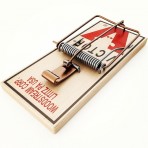Twitter Summary: Many people struggle to do anything exceptionally well if they don’t know the reasons why they’re doing it in the first place.
Principle
So far we’ve visited three main principles from Dan Pink’s book Drive. First, I shared about a primary assumption most of us have, that if you reward good behavior and punish the bad you’ll get more of the good behavior. That doesn’t work anymore according to Dan Pink and that was touched on in a post called How Money Can Do More Harm than Good. Pink says what instead is needed for a creative work environment to thrive is to give people more autonomy, a chance to master a skill, and his final point, that I want to share today, is how providing people a sense of purpose leads to greater success.
Pink explains in Drive that many entrepreneurs, executives, and investors are realizing that some of the best performing companies are those that stand for something and focus more on serving than themselves. They’ve come to realize this because they’ve noticed many people struggle to do anything exceptionally well if they don’t know the reasons why they’re doing it in the first place. People are thirsting for context, yearning to know that what they do contributes to a larger whole. And a powerful way to provide that kind of context is to spend a little less time telling people how to do something and a little more time showing them why.
Mastery and Making Connections
I’ve met far too many people who feel like they don’t have a clear purpose in their career or life in general. This usually depresses me. It’s sad because so many of us stick it out, for too long, in crappy situations for a number of fear-based reasons.
Although we often have great “mission statements” for our organizations that talk about integrity, service, and value that’s not the way the organization performs. In reality we find that what we do is so different than what we profess is our purpose. Ask yourself, do your actions actually reflect the purpose you profess or something else? You’d be surprised what other people may think your purpose is based on your actions, regardless of your mission statement or enron-chiseled-in-stone values.
Here’s an example. Take this comment I found on apartmentratings.com about Beacon Hill Apartments in Michigan from an unhappy customer. It reads:
“Mission statement of Beacon hill apartments
‘Our mission is to provide customers with quality, service and satisfaction during their residence at Beacon Hill. Our goal is to provide our customers with the ease of residing in a luxury residence, making the customers’ stay at Beacon Hill a most pleasurable experience.’
This is what you read in their website. But actually, Beacon Hills mission statement should be totally opposite. It should be like this:
‘Our mission is to provide customers with bad quality, poor service, no concern for residents and take away all satisfaction during their residence at Beacon Hill so that they will regret why they chose Beacon Hill for their stay. Our goal is to provide our customers with all the difficulties of residing, making the customers’ stay like hell that they don’t want to return.'”
While this is kind of hilarious, it’s a reminder of how what we do demonstrates our values more than what we say. And if you want to really give someone a clear definition of purpose, it has to show through in your actions first.
Pink’s principle about focusing on purpose also has connections to other principles mentioned on the blog, like the principle from Michael Gerber’s book The E-Myth that I entitled How Do You Get People to Do What You Want? In that post I wrote, “the degree to which people do what you want is equal to the degree to which they buy into your vision, and the degree to which people buy into your vision has absolutely nothing to do with them, but everything to do with how well you communicate your vision.” Pink’s principle of purpose is exactly the same, the better people understand why they need to work, the more they can feel like part of the solution and avoid being torn apart on apartmentratings.com.
This principle also has connections to a post I called Are You Accomplishing Anything?, from Ken Robinson’s book The Element. In this post we explored a principle from Robinson where he says it’s difficult to feel accomplished when you’re not accomplishing something that matters to you. If I feel no real sense of purpose to my daily activity, I’m not doing anything of value, it’s hard to be motivated or feel anything other than apathy.
So What?
Do you actions reflect your career or sense of life purpose? If they are not in line, you need to ask yourself why.
Question the situations where you have no clear purpose – get clarity! You’re wasting your time and other people’s time when you operate without a clear sense of “why.”
If you’re responsible for others in any leadership capacity, nothing could be more liberating than to feel you have a well articulated sense of purpose. Without it, you demoralize people, but with it, you liberate them to action. Clearly identify their purpose.
Next Weeks Post: Video summary wrap up of all the principles from Drive!








Leave a reply